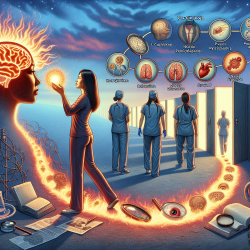As educators and therapists, we're always on the lookout for tools and assessments that can enhance our understanding of a child's learning needs. The Boehm Test of Basic Concepts Revised (Boehm-R) offers valuable insights into preschool children's comprehension of relational terms necessary for success in the early school years. Understanding and implementing findings from research on such tools can significantly improve our practice and, ultimately, student outcomes.
The Boehm-R is designed to identify children whose mastery of basic concepts is below expected levels, which could indicate the need for special instruction. It also identifies specific concepts that large numbers of children might struggle with. This dual purpose makes it an invaluable resource for classroom teachers, special educators, and speech-language pathologists alike.
However, it's essential to approach the Boehm-R with a critical eye. The research article reviewed by Elizabeth Skarakis-Doyle and Norma Wood highlights both the strengths and limitations of the Boehm-R. From a practical standpoint, the test is straightforward to administer and score. It's also accessible to a wide range of professionals due to the requirement of no special training for administration. Yet, the validity of the Boehm-R, particularly in terms of predictive validity and its ability to measure what it claims to, has been questioned.
This doesn't mean the Boehm-R isn't useful. On the contrary, it can serve as a critical component of a comprehensive assessment strategy. It's especially beneficial in identifying areas where a child may need additional support or instruction. However, the results should be interpreted with caution and in conjunction with other assessment data.
One notable concern is the recommendation within the Boehm-R's guide to teach to the test. Teaching children specifically to pass this test can be counterproductive, as it may not result in genuine understanding or mastery of the concepts tested. Instead, educators and therapists should focus on integrating these basic concepts into everyday learning in meaningful and engaging ways.
To truly enhance early educational outcomes, we must use tools like the Boehm-R as part of a broader instructional strategy. This involves:
- Assessing each child's understanding of basic concepts early on.
- Identifying specific areas of weakness and tailoring instruction to meet these needs.
- Ensuring that teaching strategies move beyond rote learning to foster genuine comprehension.
- Using a variety of assessments to get a comprehensive view of a child's abilities and progress.
By adopting a nuanced approach to the use of assessments like the Boehm-R, we can better support our students' learning journeys. Let's aim to create learning environments that not only identify areas for improvement but actively engage and inspire our students to achieve their best.
To read the original research paper, please follow this link: Boehm-R The Boehm Test of Basic Concepts Revised Exam Kit.










